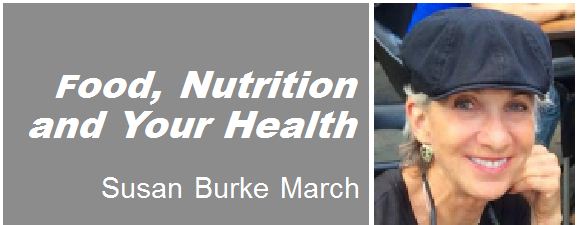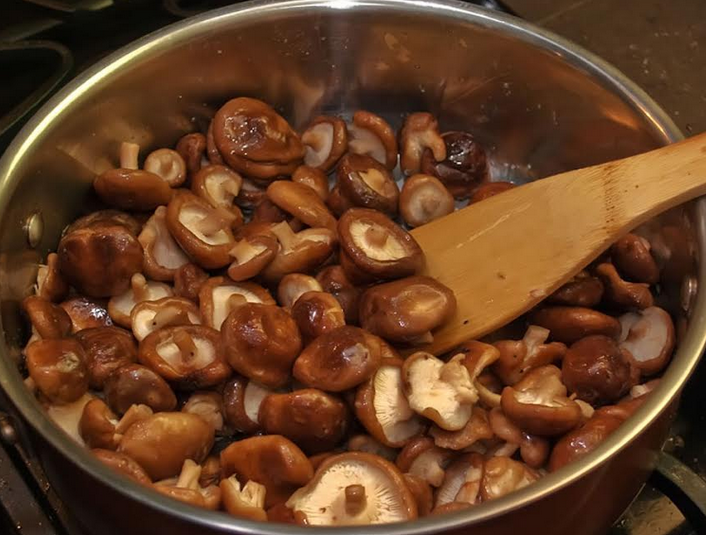How ‘magical’ are mushrooms?
The Journal of Wild Mushrooming is a fascinating resource for all things mushrooms. They say there are 10,000 described species in North American alone, but that may represent only a third to a fifth of what’s really out there!
 In percentages, 50 percent are inedible, 25 percent edible but tasteless, 20 percent will make you sick, and 1 percent will kill you. That leaves 4 percent tasty to excellent mushrooms to enjoy!
In percentages, 50 percent are inedible, 25 percent edible but tasteless, 20 percent will make you sick, and 1 percent will kill you. That leaves 4 percent tasty to excellent mushrooms to enjoy!
The New York Times reports world-wide there are at least 2,000 varieties of edible mushrooms. All are very low in calories, have a modest amount of fiber, but (in varying amounts), all mushrooms are potent sources of more than a dozen minerals and vitamins, including copper, potassium, magnesium, zinc, and B vitamins including folate. In addition, mushrooms are rich in antioxidants selenium and glutathione, which may help protect from cell damage and reduce inflammation.  Mushrooms are also a rich source of ergothioneine, or ERGO, an antioxidant found in the caps, not the stems. When mushrooms are grown in sunlight or exposed to ultraviolet light they also provide vitamin D.
Mushrooms are also a rich source of ergothioneine, or ERGO, an antioxidant found in the caps, not the stems. When mushrooms are grown in sunlight or exposed to ultraviolet light they also provide vitamin D.
Yes, mushrooms are good for you, but are they like medicine? On NPR’s Morning Edition, I learned that mushrooms have been used in Eastern medicine for centuries to treat a wide variety of maladies. FantasticFungi.com writes that there are at least 270 species known to have various therapeutic properties.
And now (of course) the dietary supplement industry is getting on the bandwagon, creating “functional” or “medicinal” mushroom products, with claims such as “preventing cancer” or “stimulating higher brain function” attached. There are mushroom teas, coffees, pills, and potions that promise to “reduce stress” or “jump start your brain.”
There is some research has shown that certain mushroom extracts may promote immunity and provide other health benefits:
Lentinula edodes (shitake) mushroom extract is being prescribed in Japan to help prolong the lives of stomach cancer patients undergoing chemotherapy.
Grifola frondosa (maitake or hen-of-the-woods) and scaly wood mushroom extracts may strengthen the immune system of some breast cancer patients.
Hericium erinaceus (lion’s mane or yamabushitake) extract may inhibit growth in cancer cell and protect against neurodegeneration in the lab and in mice.
Ganoderma lucidum (reishi) extract has been studied in mice and may help alter gut bacteria, linked to lower risk for obesity.
Pleurotus ostreatus (oyster) extract may inhibit growth of breast and colon cancer cells.
The Takeaway
The NPR report says that consuming edible mushrooms is associated with health benefits and is well established, however researchers state that dietary supplements are definitely over-hyped: studies of mushroom extracts are typically in labs and in mice. There’s definitely some promise, but not in the supplement store.
The health benefits of eating mushrooms can’t be separated from the enjoyment of their flavor. Don’t be afraid to give mushrooms a quick rinse, (no, you won’t ruin them by rinsing them)and use a soft vegetable brush to get rid of any dirt or grit, then pat dry thoroughly and quickly with paper towels. The secret is not allowing fresh mushrooms to sit in water because they’ll soak it up like a sponge.

My favorite cooking method is to heat a couple of tablespoons of olive oil in a pan over medium heat, add sliced shiitake or portobello mushrooms to the pan and stir. Add a pinch of salt and any spices such as rosemary or thyme, and continue to cook about 8-10 minutes, stirring frequently. Once lightly crisped and browned, they’re ready to serve. Click here for more cooking ideas from OrganicsAuthority.com.
Remember, there’s not enough evidence to support the claims for brain health and cancer prevention from mushroom dietary supplements. Dietary supplements are not inspected or reviewed to confirm safety and efficacy. Also, certain mushrooms when taken as extracts or powders can have toxic effects on the liver, increase risk of bleeding in people with certain bleeding disorders. Since there isn’t enough reliable information about taking most dietary supplements if you’re pregnant or breastfeeding, stay on the safe side and avoid using supplements, but enjoy eating some savory mushrooms!
My regular Mercado is 10 de Agosto on Calle Larga y General Torres, but I haven’t located mushrooms there. Supermaxi and Coral sell a variety of mushrooms including portobello and shiitake, but if you know of another place to purchase fresh mushrooms, please post in the comments below.
Susan Burke March, a Cuenca expat, is a Registered and Licensed Dietitian, a Certified Diabetes Educator who specializes in smart solutions for weight loss and diabetes-related weight management. She is the author of Making Weight Control Second Nature: Living Thin Naturally—a fun and informative book intended to liberate serial dieters and make healthy living and weight control both possible and instinctual over the long term. Do you have a food, nutrition or health question? Write to her – SusanTheDietitian@gmail.com





















